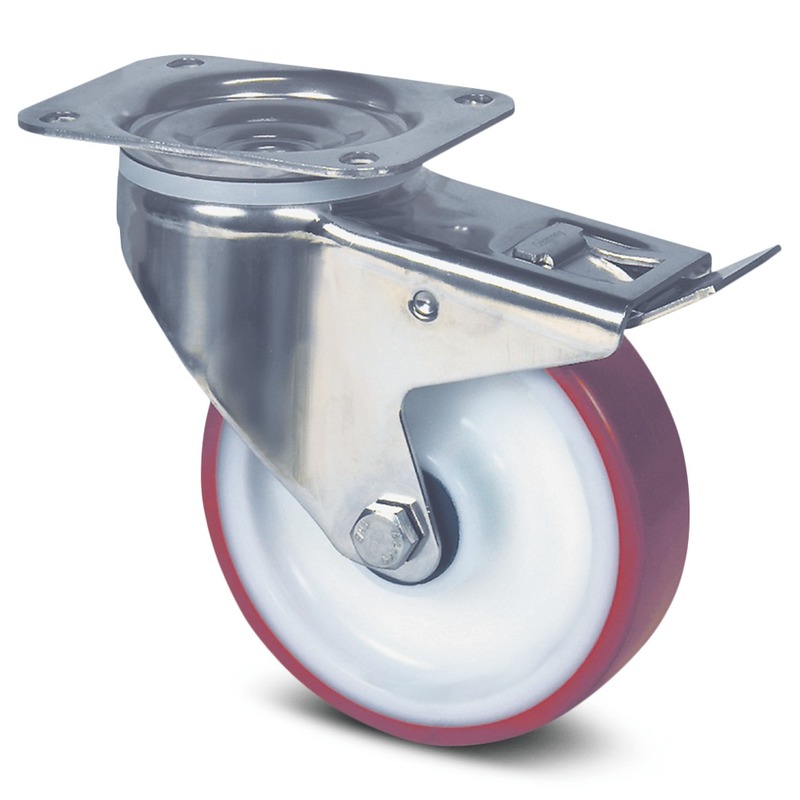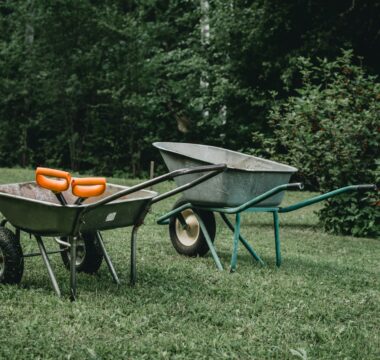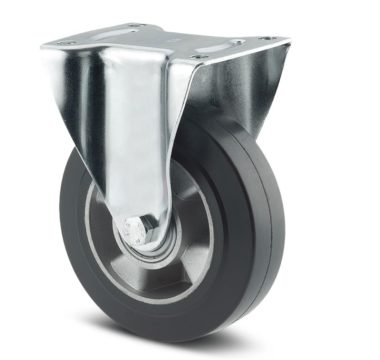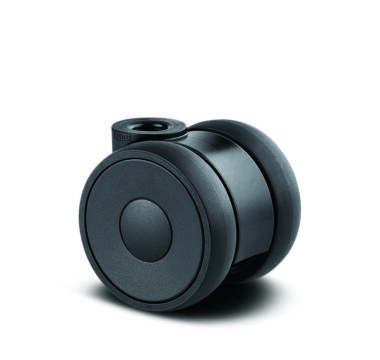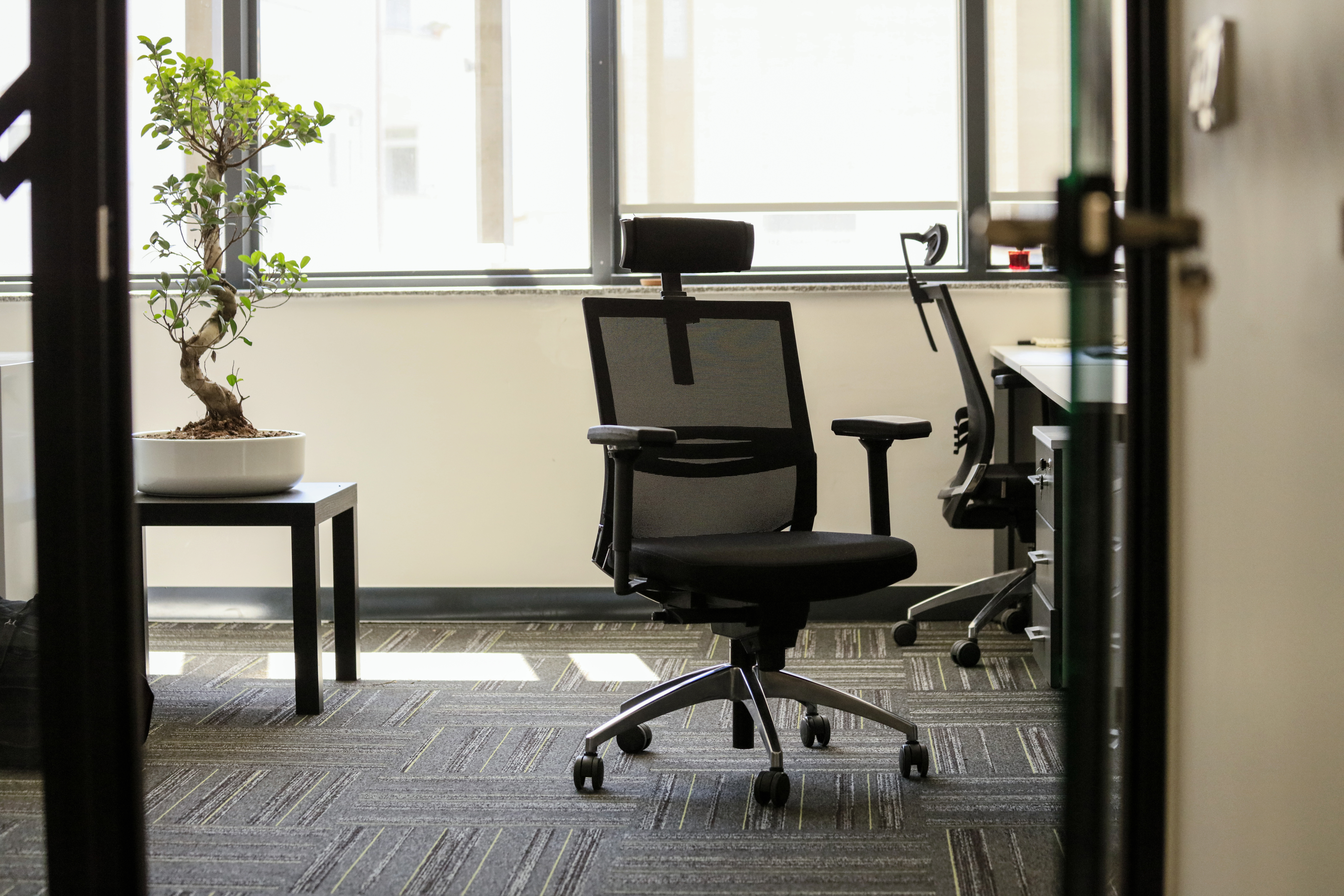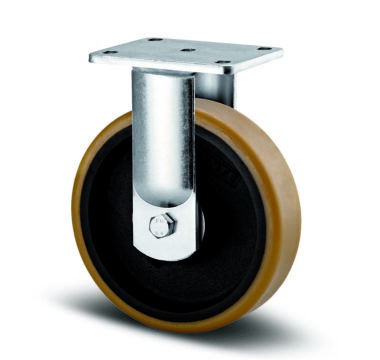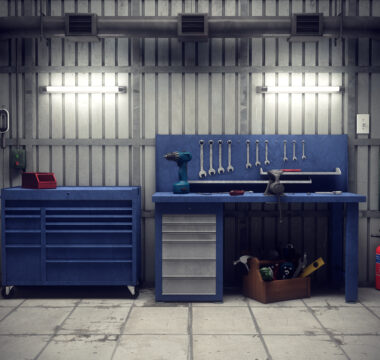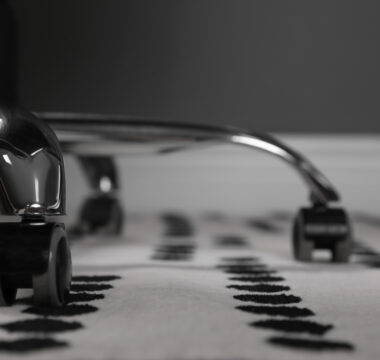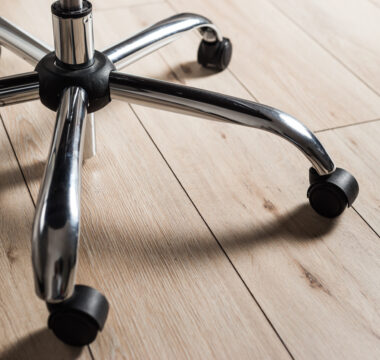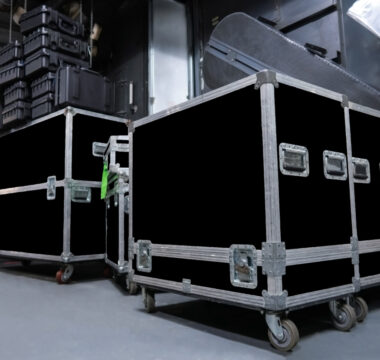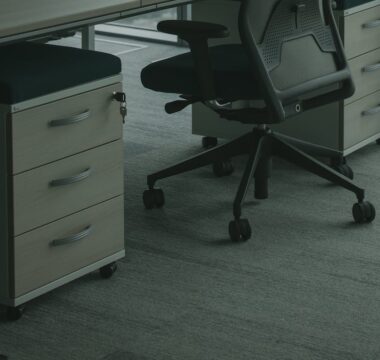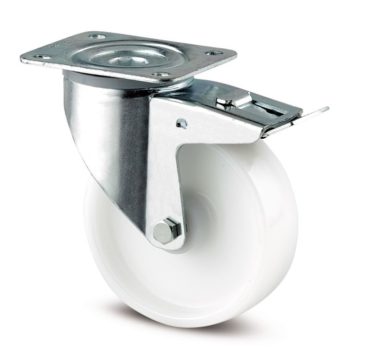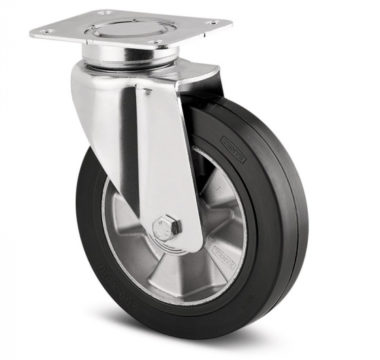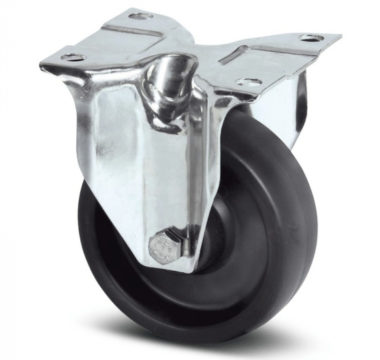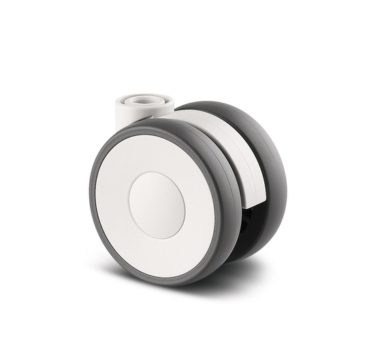Castor wheels are an integral component in the mobility of various pieces of equipment and furniture. However, the accompanying noise of rolling castors can be a source of irritation and distraction in both work and home environments. This article aims to guide you through understanding the sources of castor wheel noise and provides practical solutions to mitigate this issue.
Identifying the Noise
The first thing you’ll want to do if you’re looking to make your castor wheels quieter is to identify what’s making the noise. This will largely depend on the state of your castor wheels and the type you have. So, let’s go over the two most common types of castor to help you figure out what’s causing the noise:
Hard Castor Wheels
Hard castor wheels, typically made of materials like steel or hard plastics, are known for their durability and strength. However, these characteristics come with a downside: noise. When rolling on hard surfaces such as tile or hardwood, these wheels can create a significant amount of noise, which can be disruptive in the workplace or irritating at home. The noise level depends on factors like the wheel’s material, the surface it rolls on, and how well the wheel is maintained.
Soft Castor Wheels
In contrast, soft castor wheels are usually quieter than their hard counterparts. These wheels are often made of rubber or polyurethane and are designed to absorb shocks and dampen noise. They perform better in terms of noise reduction on a variety of surfaces, making them an ideal choice for environments where noise levels are a concern. However, they may wear out more quickly than hard wheels, especially under heavy loads or in high-traffic areas.
Reducing the Noise
Once you know what type of castor you’re dealing with, you can move on to finding solutions that reduce your castor’s noise. Let’s take a look at some of the best ways to reduce noise in castor wheels below:
Lubricate Both Wheels and Axles
Regular maintenance is key to keeping castor wheels running quietly. Lubrication can prevent and reduce noise by minimising the friction that causes squeaks and rattles. Use a high-quality lubricant on both the wheels and the axles to ensure smooth operation. It’s important to choose the right type of lubricant for the material of the wheels and to apply it properly to avoid attracting dirt and debris that could cause more noise and wear.
Install Anti-Noise Strips
Anti-noise strips, also known as thread guards, can be a simple yet effective solution to reduce noise. These strips can be installed on the wheels to provide a buffer between the wheel and the surface it rolls on. They work by absorbing vibrations and minimising the impact noise that occurs when the wheel turns or changes direction. This is a cost-effective measure that can make a noticeable difference in the noise level of your castor wheels.
Replace Old or Worn Castor Wheels
Over time, castor wheels can become worn, which often leads to increased noise. Inspect your wheels regularly for signs of wear and tear, such as flat spots, uneven tread, or damage to the wheel material. When wheels are beyond repair, replacing them is the best option. At Core Castors, we carry an extensive range of high-quality replacement wheels that can help reduce noise and improve performance. We offer a variety of sizes and materials to suit any application, ensuring that your equipment rolls smoothly and quietly.
Best Castor Wheels for Noise Reduction
When it comes to selecting castor wheels based on noise reduction, there are a few different types you’ll want to consider. These include:
Polyurethane Castors
Polyurethane castors are among the best options for noise reduction. They combine the durability of hard wheels with the noise-dampening properties of soft wheels. These wheels roll quietly on a variety of surfaces and can handle heavy loads without deforming. Additionally, polyurethane castors are resistant to chemicals and abrasions, making them suitable for harsh environments.
Thermoplastic Castors
Thermoplastic castors are another excellent choice for minimising noise. These wheels are designed to be lightweight and provide a cushioned ride, which reduces the sound produced when rolling. Thermoplastic castors are also non-marking and resistant to impact, ensuring that they remain quiet and effective over time. They work well in both indoor and outdoor settings and can withstand exposure to various chemicals and temperatures.
Enjoy a Quieter Environment With the Right Castors
By addressing both the type of castor wheels you choose and their maintenance, you can significantly reduce the noise they produce. If you’re looking to replace your old, noisy castor wheels with new ones, take a look at our range of castor wheels at Core Castors today.




